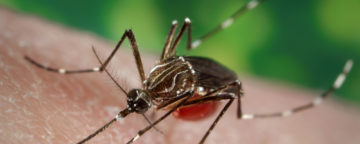In a pilot study, APPC researchers found that the American TV show "Jane the Virgin" features more risk behavior and less healthy behavior than the Spanish-language telenovela it was adapted from, "Juana la Virgen."


In a pilot study, APPC researchers found that the American TV show "Jane the Virgin" features more risk behavior and less healthy behavior than the Spanish-language telenovela it was adapted from, "Juana la Virgen."

When a critic turns believer, can the story of that conversion sway others? A new Annenberg Public Policy Center study examines the effect on public attitudes of a "conversion message" about the use of genetically modified foods.

Despite the fact that the holiday season has some of the lowest average daily suicide rates, some journalists continue to inadvertently perpetuate the holiday-suicide myth.

The Annenberg Public Policy Center has released two Science Media Monitor reports on how the media cover ethical questions on gene editing, and scientific retractions.

Research finds that cannabis use among teens does not appear to lead to greater conduct problems or greater affiliation with other teens who smoke cannabis -- it's teens with conduct problems who are more likely to gravitate toward cannabis use.

Experiencing extreme weather is not enough to convince climate change skeptics that humans are damaging the environment, according to a new study based on APPC research.

A study of media coverage of the 2016 Zika virus outbreak found that while stories focused more heavily on certain risk aspects than others, it was the volume of Zika news coverage that increased public familiarity.

Public sentiment on GMOs shifted following the release of a consensus report by the National Academies of Sciences, Engineering, and Medicine, a study finds.

The annual Annenberg Constitution Day Civics Survey found that Americans are familiar with constitutional provisions on pardons and impeachment but know less about fundamentals like the three branches of government.

Only a subset of teens who engage in excessive levels of impulsive behavior, such as acting without thinking, later struggle with addictions or other problem behaviors, a study has found.